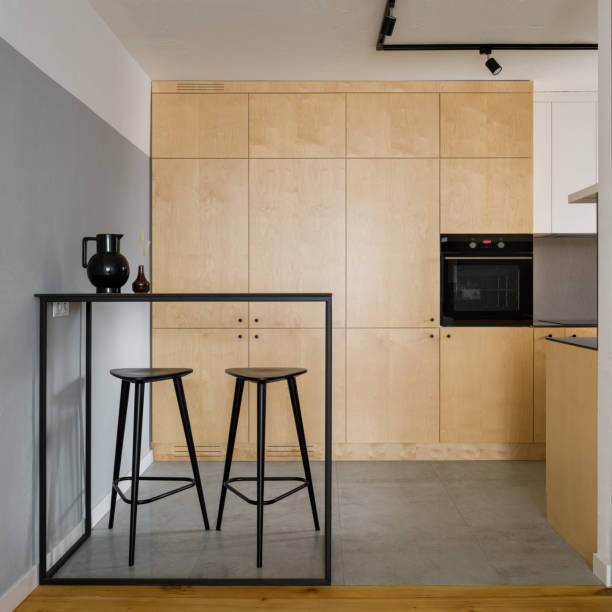
When starting a home construction or renovation project, there are countless factors to consider. From the overall aesthetic vision you have for the home space to the practical considerations of durability and functionality, every decision matters. This also includes the choice of materials used, which can significantly affect the outcome of your project.
When choosing the raw materials for home application, plywood emerges as a versatile option. Whether you're furnishing your living room with elegant cabinets, crafting a sturdy kitchen countertop, or laying down durable flooring, plywood sheets offer a multitude of benefits. Its strength, durability, and flexibility make it a favoured choice among builders and homeowners alike.
Before buying plywood for your home, it's essential to consider a few key questions to ensure you make the best choice. This blog will guide you through the important factors to keep in mind, from understanding different grades to selecting the right types for specific applications.
Different plywood grades signify different levels of quality and suitability for specific applications. Understanding the grading system can help you choose the right plywood for your needs.
From A to D, each grade has its own set of characteristics, including the number of defects allowed and the quality of the wood veneers. Consider what grade best fits your project requirements and aesthetic preferences.
Like with any purchase, your budget will play a significant role in determining the type of plywood you can afford. While it may be tempting to opt for the cheapest option available, remember that quality often comes with a price.
Assess your budget realistically and aim for the best quality plywood that fits within your financial constraints. Investing a little more upfront can save you money in the long run by reducing the need for repairs or replacements down the line.
Make sure to see the certifications while purchasing plywood. Look for products that meet recognised industry standards and certifications, such as those from the Forest Stewardship Council (FSC) or the Programme for the Endorsement of Forest Certification (PEFC).
These certifications ensure that the plywood has been sourced from responsibly managed forests, promoting sustainability and environmental conservation. Choosing certified plywood not only benefits the planet but also guarantees a higher level of quality and reliability.
A warranty provides peace of mind and serves as a testament to the manufacturer's confidence in their product. Before purchasing plywood, inquire about the warranty offered by the manufacturer or supplier.
A comprehensive warranty can protect you against defects in materials or workmanship, giving you recourse in case of any issues arising after installation. Be sure to read the warranty terms carefully and understand what is covered and for how long.
Whether you're building furniture or constructing shelves, the holding capacity of the plywood is crucial. The holding capacity refers to the amount of weight the plywood can support without failing or buckling under pressure.
Factors such as the type of wood, adhesive used, and construction technique influence the holding capacity of plywood. Consider the intended use of the plywood and choose a product that can withstand the anticipated load requirements to ensure long-lasting performance and safety.
In areas prone to moisture, such as kitchens, bathrooms, or outdoor applications, waterproof plywood is a must. Water-resistant plywood is specially treated to repel water and resist rot, mould, and fungal growth.
This added protection ensures the longevity and durability of the plywood, even in humid or wet environments. When selecting plywood for wet areas, prioritize products labelled as "marine grade" or "exterior grade" for superior water resistance and peace of mind.
Quality should always be a top priority when selecting plywood for your home projects. High-quality plywood is characterized by tight, uniform grain patterns, minimal defects, and superior structural integrity. Inspect the plywood sheets carefully for any signs of damage, such as warping, delamination, or voids in the core.
Opt for reputable brands or suppliers known for their commitment to quality and customer satisfaction. While quality plywood may come at a higher price, the investment is well worth it for superior performance and longevity.
The thickness of plywood is another important consideration that directly impacts its strength and suitability for different applications. Plywood comes in various thicknesses, ranging from thin sheets suitable for veneering to thick panels ideal for structural support.
Consider the intended use of the plywood and select the appropriate thickness accordingly. For example, thin plywood may be suitable for decorative purposes or lightweight projects, while thicker plywood is better suited for load-bearing applications such as flooring or roofing.
Also Read: A Comprehensive Guide to Different Types of Plywood: Grades, Uses, and Characteristics
Purchasing plywood for your home requires careful consideration of several key factors. By taking the time to evaluate these aspects and making informed decisions, you can ensure that your plywood purchase meets your needs and expectations, resulting in successful and long-lasting home projects. Ganpati Homez can help in your endeavour to give your home decor a remarkable facelift by offering a range of quality plywood. We have options from brands like CenturyPly, GreenPly and SlyvanPly that are designed to create a stylish kitchen that showcases your interests, tastes and preferences in home decor.